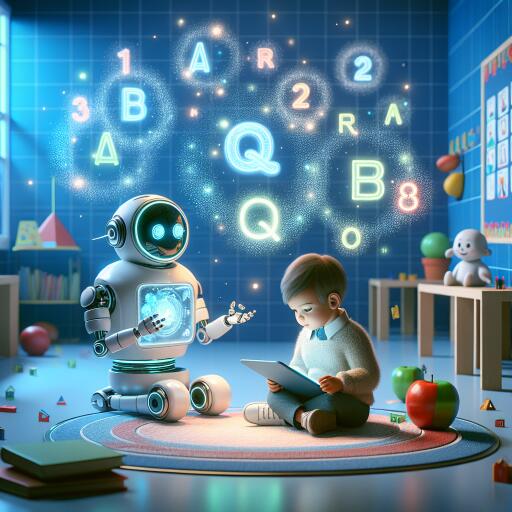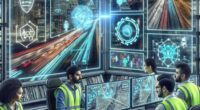Embracing AI in Early Childhood Education: A Leap Towards the Future
The landscape of early childhood education is undergoing a transformative shift, with artificial intelligence (AI) emerging as a pivotal tool for enriching the learning experiences of preschoolers. As technology becomes increasingly entrenched in our daily lives, the integration of AI in early education settings heralds a new era of interactive learning, setting the stage for future generations to effortlessly navigate a tech-driven world.
Gone are the days when learning was confined to traditional textbooks and memorization. Today, AI transcends its conventional boundaries, extending its reach into classrooms. This move is not aimed at replacing teachers but rather at amplifying the learning capabilities of young children, ensuring they are well-prepared for a technologically advanced future.
While the impact of AI is well-acknowledged in sectors such as healthcare and transportation, its application in early childhood education may appear less obvious at first glance. Despite this, recent studies highlight the significant, untapped potential of AI in fostering equitable learning opportunities for children as young as three, supporting broader educational goals including those laid out by the United Nations Sustainable Development Goals.
AI’s accessibility and appeal to young learners are enhanced through the humanization of AI models, exemplified by educational robots and interactive programs designed to introduce complex concepts in a friendly, engaging manner. A prime example of this approach is the “AI for Kids” programme, conceived by The Education University of Hong Kong. This innovative curriculum introduces preschoolers to basic machine learning concepts through a blend of interactive storybooks, music, and activities with a focus on themes like ocean conservation.
An evaluation of the AI for Kids curriculum revealed its effectiveness in improving pattern recognition and object classification among preschoolers, alongside fostering an understanding of AI’s limitations, such as inherent biases. Furthermore, its culturally responsive design has been instrumental in strengthening students’ sense of identity and connection to various subjects, demonstrating significant positive outcomes in STEM engagement and collaborative skills across diverse learning environments.
Moreover, AI’s role extends beyond academic enhancement, nurturing essential social and emotional skills that enable children to communicate and collaborate effectively. Activities such as programming robots have been shown to not only bolster sequencing abilities but also enhance emotional regulation amongst young learners. Ensuring productive exploration and fostering healthy interactions with technology are crucial for leveraging AI’s full potential in education.
As we venture further into integrating AI within educational systems, ongoing research and open-sourced collaborative initiatives are vital for developing accessible platforms that allow even preschoolers to engage with AI concepts. Introducing AI through culturally relevant content makes learning a fun and meaningful experience for children.
It’s also imperative to conduct careful evaluations to address potential risks associated with data privacy and algorithmic biases, ensuring AI’s integration benefits all students without unintended negative consequences. Through thoughtfully designed educational experiences, AI holds the promise to empower every child as creative problem solitors and responsible digital citizens, laying a strong foundation for their futures.
In a step towards fulfilling this potential, Hong Kong introduced its inaugural AI curriculum for junior secondary students last year, focusing on both the practical applications and ethical considerations of AI technology. Such initiatives, coupled with multisector partnerships, can significantly extend AI’s educational reach, especially within underprivileged communities.
Smart integration of AI in education aligns with the UN’s objectives of ensuring quality education and reducing inequalities, enabling young learners from all backgrounds to explore STEM fields from an early age. With community involvement and careful planning, AI can create learning environments that equip children to thrive in an evolving global landscape.
Originally adapted from a piece by Weipeng Yang, an assistant professor in early childhood education at The Education University of Hong Kong, this analysis underscores the critical role of AI in shaping a generation that is not only fluent in human and machine thinking but also skilled in deploying these capabilities collaboratively to address some of humanity’s most pressing challenges through compassionate innovation.










